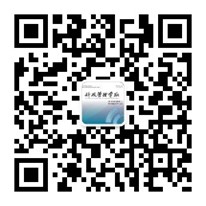Keywords
Internet, environmental regulation, “Internet + environmental regulation”, green economy efficiency
Abstract
The DEA-SBM model is used to measure urban green economy efficiency and its decomposition terms in China, and a dynamic GMM model is further constructed to empirically-analyze the impact of the coupling effect of Internet development, environmental regulation and “ Internet + environmental regulation” on green economy efficiency and its decomposition terms, green technology efficiency and green scale efficiency. The following conclusions are drawn: During the study period, the efficiency of urban green economy in China showed an increasing trend year by year, but the overall level was low and there was still a large room for improvement. The efficiency of green economy is lower than that of traditional economy. The traditional economic efficiency focusing only on “good output” is one-sided and overestimates urban economic performance, while the green economic efficiency considering resource utilization and environmental quality can reflect urban economic performance more comprehensively and accurately. The change of green economy efficiency mainly comes from the change of green technology efficiency. Technology efficiency is the main factor restricting green economy efficiency, and green scale efficiency shows a slow growth trend. Under the condition that the expected output remains unchanged, the green economy efficiency decreases significantly under the condition of increasing the weight of non-expected output, indicating that excessive environmental pollution and other non-expected output will have a drag effect on green efficiency. The baseline regression results show that the Internet development has a significant negative impact on the green economy efficiency and its decomposition terms. The influence of environmental regulations on green economic efficiency and its decomposition terms is consistent, showing an inverted U-shaped transmission path of first rising and then falling. The coupling effect of “Internet + environmental regulation” has significantly promoted the growth of green economy efficiency and its decomposition terms. Heterogeneity regression results show that Internet development has no significant impact on green economic efficiency and green scale efficiency in eastern China, and has a significant negative impact on green technology efficiency, while Internet development has a significant negative impact on green economic efficiency and its decomposition terms in central and western China. The relationship between environmental regulation and green economic efficiency and its decomposition terms in the eastern region is an inverted “ U” shape, and the relationship between environmental regulation and green economic efficiency and its decomposition terms in the central and western region is a “U” shape, and the relationship between environmental regulation and green economic efficiency and its decomposition terms is a “U” shape. The coupling effect of “Internet + environmental regulation” helps to improve the efficiency of green economy in the three regions. The research conclusion deepens the theoretical understanding of the relationship among Internet, environmental regulation and green economy efficiency, and has reference significance for cities to enhance green economy efficiency by integrating “Internet + environmental regulation” in the context of the Internet era. Finally, according to the conclusions, the following policy recommendations are put forward: first, to improve the resilience of urban economy and promote the high-quality development of the Internet; second, to formulate environmental regulation policies according to local conditions; third, to deepen the coupling governance model of “ Internet + environmental regulation” to lead the transformation of urban digital green.
DOI
10.16315/j.stm.2023.04.009
Recommended Citation
ZHANG, Qian and LIN, Yingzhen
(2023)
"Can “Internet + environmental regulation” improve the efficiency of urban green economy?,"
Journal of Science and Technology Management: Vol. 25:
Iss.
4, Article 5.
DOI: 10.16315/j.stm.2023.04.009
Available at:
https://jstm.researchcommons.org/journal/vol25/iss4/5
Creative Commons License

This work is licensed under a Creative Commons Attribution-NonCommercial-No Derivative Works 4.0 International License.

